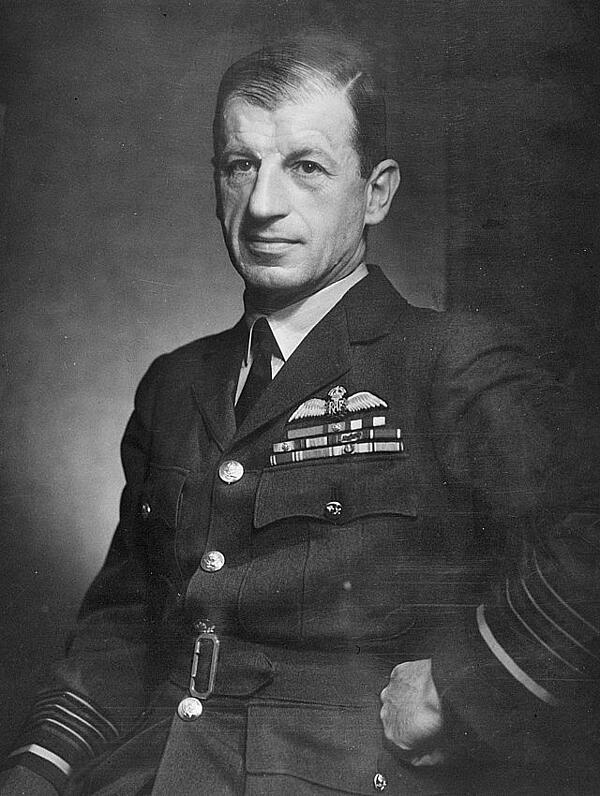Charles Portal
Charles Portal was an RAF commander who became Marshal of the RAF in 1944.
Born in Hungerford on 21 May 1893, Portal was educated at Winchester College and Christ's College, Oxford. At the outbreak of World War One he abandoned his degree to join the British Army. Portal joined the Royal Engineers and towards the end of 1914 was in control of the 1st Corps Headquarters Signal Company motorbike riders. In 1915, Portal moved over to the newly created Royal Flying Corps. Portal was a talented pilot and served with distinction. By the end of the war he had been promoted to the rank of lieutenant colonel and awarded the Distinguished Flying Cross and the Military Cross and had acquired the rank of lieutenant colonel.
Portal signed up with the newly formed Royal Air Force at the end of the war. Improving bombing accuracy was his main goal so that perilous missions had definite results. In 1937 he was promoted to the rank of Air Vice Marshal.

As war became ever more likely, Portal was responsible for creating 30 new British air bases. After the beginning of the war he became Air Marshal, then in April 1940 was given control of Bomber Command. On 25 August, Portal ordered Bomber Command crews to attack cities in Germany.
The attacks aimed to demonstrate the RAF’s authority to the Nazi government. Initially the raids did not cause much damage, but they changed the course of the Battle of Britain. Fighter Command had found it hard to contain Luftwaffe attacks on British air bases. Bomber Command’s attacks on German cities prompted the Luftwaffe to change its targets in revenge. London now became the focus. This bought Fighter Command valuable time to recover. It went on to win the Battle of Britain.
In July 1940, Portal received a knighthood and in October 1940 was promoted to Air Chief Marshal before becoming Chief of the Air Staff.
With 'Bomber' Harris, Portal introduced the ‘area bombing’ tactic. He felt mass night-time bombing German cities would damage civilian morale: the population would turn on the Nazi government and leave it with no choice but to surrender. This was the rationale behind the devastating raids on Hamburg, Cologne, and most emotively, Dresden, the ‘Florence of the Elbe’. Large swathes of Dresden were razed to the ground by ferocious bombing. Today this bombing campaign continues to remain a controversial situation. Bomber Command experienced some significant casualties: approximately 57,000 men were killed.
Portal went to the Casablanca meeting with Churchill in January 1943. Portal was chosen by the Combined Chiefs of Staff for the co-ordination of American and British bomber forces in a combined offensive over Germany. Portal was promoted in 1944 to the rank of Marshal of the RAF.
Churchill ordered Portal to stop area bombing at the end of March 1945. As the end of the war approached, Churchill realised that the Allies would suddenly take charge of a veritable wasteland when they occupied Germany.
In August 1946, Portal became Viscount of Hungerford. Upon departing from the RAF, he worked in several positions, including Controller of Atomic Energy. Portal died on 22 April 1971.
MLA Citation/Reference
"Charles Portal". HistoryLearning.com. 2026. Web.
